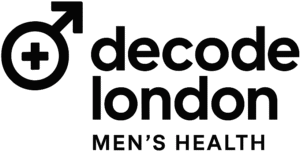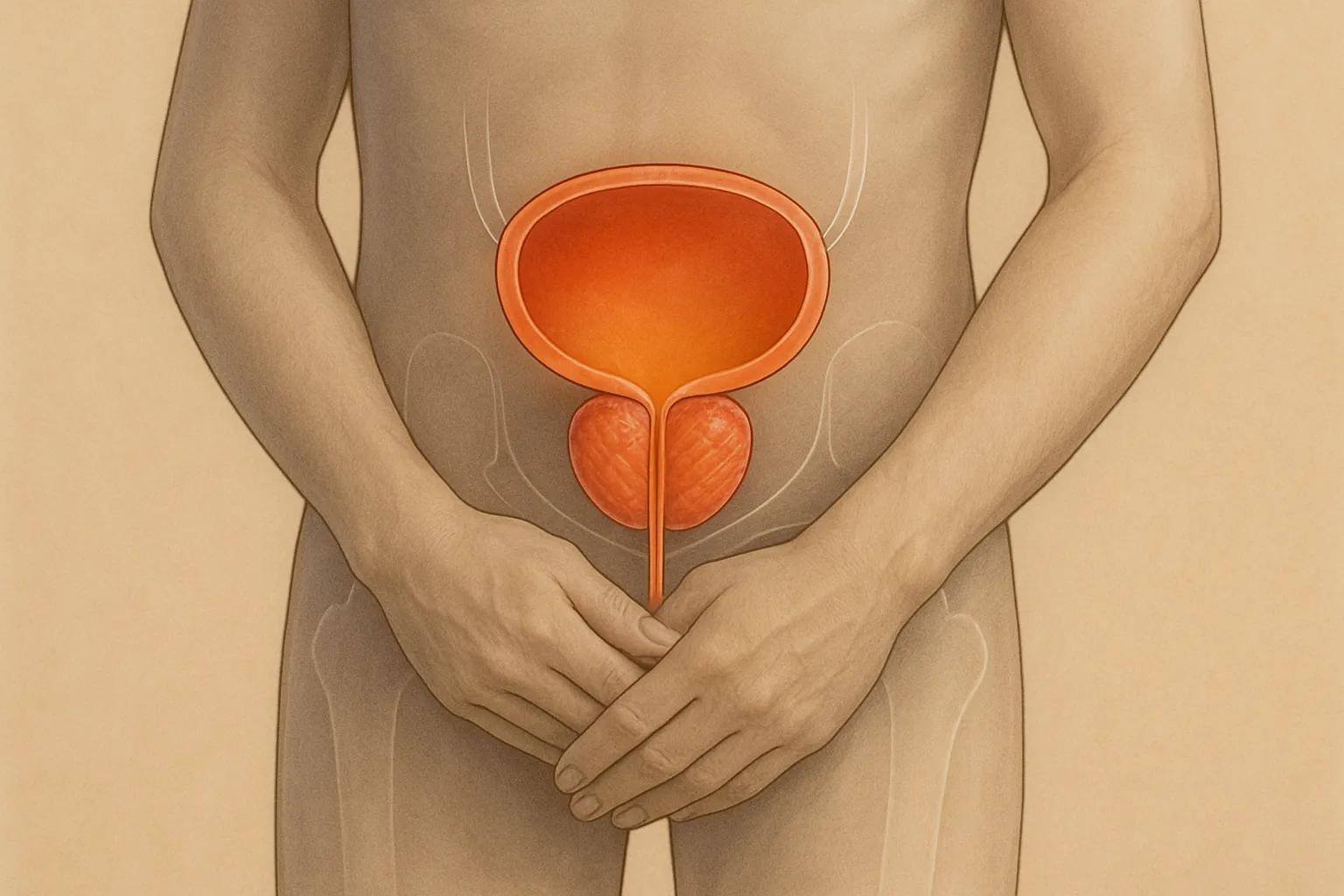Why Men’s Heart Health Needs Special Attention
Cardiovascular disease remains the leading cause of death among men worldwide, and yet it’s often overlooked—especially by younger men who feel invincible. The truth is, heart health doesn’t become important only in your 60s or 70s. In fact, habits built in your 30s, 40s, and 50s have a massive influence on the state of your heart in later life.
Men are biologically more prone to heart issues at a younger age than women, primarily due to differences in hormones like estrogen, which offers women some protection until menopause. Additionally, societal pressures around masculinity often prevent men from seeking regular health checks or expressing stress, which can silently damage cardiovascular function over time.
The good news? Heart disease is largely preventable. By understanding the risk factors and actively working to reduce them, men can take control of their long-term health.
Understanding the Key Risk Factors
There are several contributors to heart disease that men should be aware of, many of which are modifiable through lifestyle changes. While some risk factors are genetic, the majority are environmental or behavioral. Here’s a breakdown of the main culprits:
- High blood pressure (hypertension): Often called the “silent killer” because it has no symptoms, high blood pressure puts excess strain on the arteries, heart, and kidneys. Left untreated, it dramatically increases the risk of stroke and heart attack.
- High cholesterol: Specifically, elevated LDL (“bad”) cholesterol and low HDL (“good”) cholesterol levels contribute to plaque buildup in the arteries, restricting blood flow and raising the risk of clots and blockages.
- Smoking: Tobacco use is one of the most preventable causes of heart disease. It damages blood vessels, reduces oxygen in the blood, and increases the likelihood of clotting.
- Obesity: Carrying excess weight, particularly around the midsection, significantly raises the risk of high blood pressure, diabetes, and poor cholesterol—all contributors to heart disease.
- Sedentary lifestyle: Lack of physical activity weakens the heart muscle and impairs circulation. It also contributes to insulin resistance, weight gain, and poor stress management.
- Poor diet: Diets high in saturated fat, trans fat, sugar, and salt can raise blood pressure and cholesterol, promote inflammation, and lead to arterial damage.
- Stress and mental health: Chronic stress can cause long-term inflammation and hormonal disruption. It’s also associated with behaviors like overeating, drinking, and smoking—all of which further harm heart health.
- Family history: Having a parent or sibling with heart disease increases your risk, but this doesn’t mean heart disease is inevitable. Lifestyle plays a major role in managing inherited risks.
The Power of Early Detection and Screening
One of the simplest and most effective steps a man can take is getting regular health screenings. This includes monitoring blood pressure, cholesterol levels, blood sugar, and body weight. These tests provide a window into your cardiovascular health and help identify early warning signs before they become life-threatening.
Starting around age 30–35, most men should undergo a full physical exam at least once a year. This includes:
- Blood pressure screening (at least once every 2 years, more often if readings are high)
- Lipid panel (cholesterol test) every 4–6 years, or more frequently if abnormal
- Blood glucose test to monitor for prediabetes or diabetes
- Weight and waist circumference checks to assess obesity-related risk
Knowing your numbers allows you to set measurable health goals. Even small improvements—like reducing blood pressure by 10 mmHg or lowering LDL cholesterol—can lead to significant drops in heart disease risk.
Lifestyle Tweaks That Yield Big Results
Improving heart health doesn’t necessarily require a total life overhaul. Often, it’s small daily decisions that add up to meaningful change. Incorporating even a few of the following strategies can make a real difference:
- Add more movement to your day: Aim for at least 150 minutes of moderate-intensity aerobic exercise per week. Brisk walking, cycling, swimming, or dancing all qualify. Try to break up long periods of sitting with short movement breaks.
- Swap processed food for whole food: Replace fast food and packaged snacks with vegetables, fruits, whole grains, lean protein, and healthy fats. Cook more meals at home to control ingredients and portions.
- Choose heart-healthy fats: Instead of butter, red meat, and fried foods, opt for olive oil, nuts, avocados, and fatty fish like salmon or mackerel. These provide omega-3 fatty acids which reduce inflammation and improve cholesterol profiles.
- Cut back on added sugar and salt: High-sugar diets contribute to obesity and insulin resistance, while excess salt raises blood pressure. Read nutrition labels carefully and be mindful of sauces, processed meats, and restaurant meals.
- Reduce alcohol consumption: Excessive drinking is linked to high blood pressure, irregular heartbeats, and obesity. Stick to moderate drinking guidelines—up to two drinks per day for men.
- Quit smoking: If you smoke, quitting is the single most important action you can take for your heart. Within a year of quitting, your heart disease risk drops by half compared to a smoker.
Building a Sustainable Exercise Routine
Exercise is arguably the most powerful tool for improving heart health. Regular physical activity strengthens the heart muscle, improves circulation, lowers blood pressure, burns excess fat, and boosts mood and energy levels.
But to stick with it long-term, your workout plan must be sustainable and enjoyable. This means choosing activities that fit your schedule, interests, and physical ability. For some, that might be gym training. For others, it’s hiking, biking, or home-based bodyweight workouts.
A balanced program should include:
- Cardio: Walking, jogging, rowing, cycling, or swimming. These elevate heart rate and improve aerobic capacity.
- Strength training: Lifting weights or doing resistance exercises twice per week can improve insulin sensitivity, support weight loss, and reduce blood pressure.
- Flexibility and mobility: Yoga, dynamic stretching, or mobility work help reduce injury risk and support joint health—especially important as you age.
Even short bursts of exercise add up. A 20-minute walk after meals, stair climbing instead of elevators, or morning stretches can all help keep your heart active throughout the day.
Managing Stress and Protecting Your Heart
Stress isn’t just a mental issue—it has a direct physical impact on your cardiovascular system. When stressed, your body releases adrenaline and cortisol, which raise your heart rate and blood pressure. Over time, this can damage artery walls, increase inflammation, and disrupt healthy habits like eating and sleeping.
Chronic stress, especially when left unmanaged, is associated with an increased risk of heart attack and stroke. It also contributes to emotional eating, smoking, alcohol use, and sleep disturbances.
Men are often encouraged to “tough it out” and avoid expressing emotions, but this approach is counterproductive. Embracing healthy stress management techniques can improve both mental well-being and physical health. These include:
- Meditation or breathwork: Just 5–10 minutes per day can lower heart rate and reduce cortisol levels.
- Spending time in nature: Walks in green spaces are shown to calm the nervous system.
- Social connection: Talking to friends or loved ones can relieve emotional pressure.
- Therapy or coaching: Working with a professional offers tools to reframe challenges and build resilience.
Sleep and Heart Health: The Missing Link
Many men underestimate the impact of sleep on cardiovascular health, often sacrificing rest for work, entertainment, or responsibilities. Yet, sleep is a foundational pillar for heart function. Poor sleep—whether due to insomnia, inconsistent patterns, or sleep apnea—can increase blood pressure, elevate cortisol, impair insulin sensitivity, and trigger inflammation in the body.
A consistent lack of quality sleep (less than 6–7 hours per night) has been linked to an increased risk of hypertension, stroke, heart attack, and obesity. Even those who exercise and eat well may still face elevated risk if they routinely sacrifice rest.
Men should aim for 7–9 hours of high-quality sleep each night. Creating a sleep-friendly environment—cool, dark, and quiet—helps support natural circadian rhythms. Establishing a wind-down routine (no screens an hour before bed, limiting caffeine late in the day, and going to bed at the same time each night) reinforces deep rest and recovery.
If snoring or interrupted breathing is a problem, consider a sleep study to rule out obstructive sleep apnea, a serious condition that often goes undiagnosed in men and places tremendous strain on the cardiovascular system.
Weight Management and Belly Fat: More Than Just Appearance
Excess weight, especially abdominal fat, is more than a cosmetic issue—it’s a critical risk factor for heart disease. Visceral fat, which surrounds internal organs, is metabolically active and contributes to insulin resistance, inflammation, and poor cholesterol profiles.
Men are especially prone to accumulating fat around the midsection, and as testosterone declines with age, maintaining a healthy weight becomes more challenging. However, even modest weight loss—5–10% of total body weight—can significantly reduce blood pressure, lower LDL cholesterol, and improve overall heart function.
The goal isn’t extreme dieting or drastic changes, but rather sustainable weight management strategies:
- Eat nutrient-dense meals with a focus on fiber, lean protein, and healthy fats
- Avoid skipping meals, which can lead to binge eating later
- Monitor portion sizes and limit late-night snacking
- Stay hydrated and mindful during meals
- Combine strength and cardio training to burn fat and preserve muscle
Tracking progress through waist circumference (aiming for less than 40 inches/102 cm for men) can be more insightful than weight alone.
Supplements That May Support Heart Health
While whole food is the foundation of any heart-healthy lifestyle, certain supplements can complement your efforts—especially when nutritional gaps or genetic predispositions are at play. Before beginning any supplement regimen, it’s important to consult with a healthcare provider, especially if you’re taking medications or have pre-existing conditions.
Here are some commonly used supplements that may support cardiovascular health:
- Omega-3 fatty acids (EPA and DHA): Found in fish oil, these reduce triglycerides, support blood vessel health, and lower inflammation.
- Magnesium: Helps regulate blood pressure, support muscle relaxation, and stabilize heart rhythms.
- Coenzyme Q10 (CoQ10): An antioxidant that supports energy production in heart cells, especially beneficial for those taking statin medications.
- Garlic extract: Has been shown to modestly reduce blood pressure and improve cholesterol.
- Plant sterols: Can lower LDL cholesterol when used in conjunction with a heart-healthy diet.
- Vitamin D: Plays a role in blood pressure regulation and inflammation, especially in those who are deficient.
Supplements are not magic bullets, but when used appropriately, they can be an effective part of a larger prevention strategy.
Preventive Healthcare: Stay Ahead of the Curve
One of the most impactful choices men can make is embracing preventive healthcare. Instead of waiting for symptoms, the goal is to stay ahead of problems through proactive monitoring and early intervention.
In addition to routine blood work and screenings, consider asking your doctor about:
- Coronary artery calcium (CAC) scoring: A non-invasive scan that detects calcified plaque in the arteries, providing a snapshot of heart disease risk.
- Carotid artery ultrasound: Assesses blood flow and plaque buildup in the neck arteries that supply the brain.
- Inflammatory markers: Tests such as C-reactive protein (CRP) can indicate underlying inflammation, a known contributor to atherosclerosis.
- Genetic testing: In some cases, knowing your genetic risk can inform personalized approaches to nutrition, exercise, and medication.
By working with your healthcare team, you can create a tailored plan that fits your history, goals, and lifestyle. Early detection can mean simpler interventions and better outcomes.
The Emotional Impact of a Heart Diagnosis
Receiving news of high blood pressure, high cholesterol, or early signs of heart disease can be a shock. For many men, these diagnoses feel like a blow to their identity, independence, or masculinity. That emotional weight is real—and it needs to be addressed alongside physical treatment.
Ignoring the mental impact of a diagnosis can lead to denial, avoidance of follow-ups, or depressive behaviors that worsen health. On the flip side, acceptance and action can be empowering. Many men find that a wake-up call leads them to build better habits, reconnect with loved ones, and take their health seriously for the first time in years.
Support groups, therapy, or even just speaking openly with friends or family can provide the motivation and emotional processing needed to move forward confidently.
Staying the Course: Motivation and Maintenance
Heart health isn’t a 30-day challenge or a one-time fix—it’s a lifelong commitment. That doesn’t mean it has to be rigid or joyless. On the contrary, the most effective heart-healthy habits are the ones you enjoy and can repeat consistently.
Here are a few strategies to stay motivated long term:
- Set meaningful goals (playing with your kids, hiking, avoiding medications)
- Track progress with a journal or app—seeing improvements keeps you engaged
- Build a support network—train with a friend, join a group, or work with a coach
- Celebrate milestones—reaching a lower blood pressure, improving cholesterol, or sticking to your workout plan deserves recognition
- Allow flexibility—perfection isn’t the goal; consistency is
Understanding that heart health is an evolving journey helps keep setbacks in perspective. A missed workout, a poor food choice, or a stressful day doesn’t undo months of progress. The key is to keep returning to your healthy habits.
Redefining Strength: A New Model of Masculinity
In many cultures, men are taught to equate strength with stoicism, toughness, and independence. But in the context of heart health, real strength means responsibility—taking ownership of your well-being, asking for support when needed, and making decisions that serve your future self.
It’s strong to schedule your checkup.
It’s strong to swap fries for a salad.
It’s strong to say no to stress-fueled habits and yes to long-term goals.
When you prioritize your heart, you’re not just improving your own life—you’re showing up stronger for your family, friends, and community.
Final Word
Heart disease may be the number one threat to men’s health, but it’s also one of the most preventable. With the right knowledge, small daily actions, and a proactive mindset, you can protect your heart for decades to come.
Whether you’re in your 30s, 40s, or beyond, it’s never too early—or too late—to care for your heart. Invest in your future, listen to your body, and take the steps now to build a stronger, longer, healthier life.










